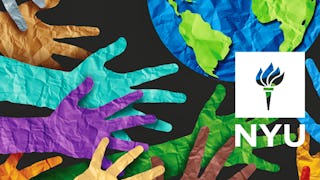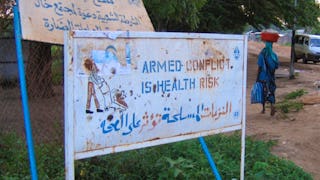Drawing on the contributions of several academic disciplines including law, psychology, sociology, history, educational and health sciences, economy and anthropology, an interdisciplinary approach guides the student into a selection of critical issues concerning children’s rights. Participants will gain insight relative to the development of this specific human rights category, as well as to the evolution of the challenges faced by children over time and society’s efforts to respond. Successful international strategies and programs promoting children’s rights will be highlighted, as well as the role of key actors involved in international organizations working in this field. This open online course provides an overview of the most important features of children’s human rights. A central portion of the MOOC will consist of a presentation of the international and regional standards on children’s rights and the related international and regional judicial and quasi-judicial bodies designed to ensure their implementation.

Heat up your career with 40% off top courses from Google, Adobe, and more. Save today.


Children's Human Rights - An Interdisciplinary Introduction



Instructors: Roberta Ruggiero
84,350 already enrolled
Included with 
(2,137 reviews)
Skills you'll gain
Details to know

Add to your LinkedIn profile
7 assignments
See how employees at top companies are mastering in-demand skills

There are 7 modules in this course
The module begins with the presentation of the background, origins and main content of the UN Convention on the Rights of the Child (CRC), and provides details about the preparatory work and the international political context in which the Convention was drafted. The content of international human rights norms are discussed using the subdivision between civil and political rights on the one hand, and economic, social and cultural rights on the other. Furthermore, the general UN human rights monitoring mechanisms will be introduced, followed by the presentation of the CRC monitoring system. A discussion on the importance of regional human rights monitoring systems for children in Africa, Asia and Latin America will be the subject of a specific round table. Within the monitoring framework a particular attention is dedicated to role of key actors: Independent National Human Rights Institutions (INHRIs) on Children’s rights, Non-Governmental organizations (NGOs) and children.
What's included
11 videos1 reading1 assignment
This module provides an overview of the evolution of children's rights before the adoption of the United Nations Convention on the Rights of the Child. Based on a chronological approach, it is a comprehensive social and cultural history of children's rights, of the way they developed over the course of the last centuries. While not building on a strict history of diplomatic relations, this module provides an international perspective on this evolution. It aims to underline the multiplicity of actors, networks and organizations involved in the defense and promotion of children's rights, over time. Also, it emphasizes crucial moments of this history, such as the adoption of international legal instruments on the rights of the child, the two World Wars, etc. This module will nonetheless challenge common understandings of the history of children's rights. For instance, instead of describing it as a linear success story, it will highlight progress as well as failures. Also, the idea that the rights of the child are a 20th Century invention will be balanced. By doing so, we aim to provide a complex understanding of the history of children's rights and detailed contexts for the topics they cover (e.g. child labor, juvenile justice, etc.) and that will be studied later in this MOOC.
What's included
7 videos1 assignment
The module will provide a general introduction to the field of children’s rights studies. It will emphasize the interdisciplinary outlook of the field and will present schools of thought in children’s rights. Furthermore, we will show the links between children’s rights and the sociology and anthropology of childhood and provide some examples of recent children’s rights research and practice.
What's included
6 videos1 assignment
The field of Juvenile Justice (JJ) or of systems of Justice specialized for children in conflict with the law, is the field of children’s rights where the international community has drafted the largest amount of legislation (national, regional and international). It is obviously a very sensitive field where child rights violations are numerous, where violence in institutions must be deplored, and where the response is not always child-friendly, and does not systematically favor individual child development. It is moreover a domain where the State exerts its power in response to child offenses, very often through the deprivation of liberty ; and where the State’s interference also represses non-criminal behavior (running away, breaking disciplinary rules, breaking curfews, …), all of these actions would not be legally reprehensible if committed by an adult (status offence). And, alas this field of JJ sometimes accounts for violations of children’s rights at the hands of States themselves: in the arrest phase, in administrative detention, in the execution of judiciary sentences, but also in institutional care. The issue of JJ also includes children victims and witnesses.
What's included
9 videos1 assignment
Protection is a central pillar in the field of children’s rights and a dimension that probably, along with health and education, captures most of society’s financial outlays in favour of children. Because of their young age and their physical status, children are much more vulnerable than other social groups and indeed the victimisation of children around the world reaches staggering proportions. In this module, we will examine various forms of age-old and emerging forms of violence against children, the institutional and professional responses to the phenomenon.
What's included
7 videos1 assignment
Art. 12 to 17 and art. 31 UNCRC are considered to refer to “participation rights”. These rights are considered the most “revolutionary” under the provisions of the UNCRC because they challenge traditional and tokenistic conceptions of childhood. The challenge however also lies in the balance to be found, in all settings, between structural adaptations necessary to favour child participation and the evolving capacities of the children themselves, who can only progressively exert their own rights directly. Another aspect is participation of children as individuals or as groups, notably their collective decision-making capacity. It looks like practice has outstripped theory. The difference between the child as a subject of rights and the child’s real agency as a social actor needs more theoretical frameworks, as the problem of implementation is also a problem of our own understanding of agency. Among the modes of recognition, rights are only a limited part of the reality experienced by children mainly in terms of affection and esteem. The challenges of implementing children’s participation rights in a series of settings, as recommended by CRC General Comment Nr 12, are therefore conveying an analysis of the terms used (maturity, freely expressed views, etc.) that may include children’s own perspectives on these issues. Examples of procedures for the implementation of children’s participation rights highlight all these challenges and the difficulties of defining good indicators of child participation. Besides, child participation should also be guaranteed even when children are viewed as “deviant” or “delinquent”: the respect for child participation in judicial settings highlights the complex interplay between one’s status and one’s rights in practice. Eventually, as child participation should be guaranteed in all settings, research itself should be child-friendly and participative and ethical principles for researchers must be specified when dealing with children.
What's included
10 videos1 assignment
Health is a state of complete physical, mental and social well-being and not merely the absence of disease or infirmity (Preamble to the Constitution of the World Health Organization 22 July 1946). Certain traditional practices committed on children compromise sometimes severely both their physical and moral development and thus affect their health. These practices while explicitly prohibited by the Convention on the Rights of the Child (CRC) at. art. 24.3 CRC are widely committed in quasi total impunity. Even if some traditional harmful practices concern more specific regions of the globe, due to migratory movements, in fine every State is concerned. Global health is a universal concept of human rights and contributes to, the realization of many other children’s rights such as the right of non-discrimination (art. 2 CRC), the right to life, survival and development (art.6 CRC), the right to participation (art. 12 CRC) the right to privacy (art. 16 CRC) or the right to access to information (art. 17 CRC). Placing children’s rights in the context of traditional harmful practices and global health, adopting a child’s rights based approach, contributes to a better understanding of the problem and thus to a better care of the victims.
What's included
8 videos1 assignment
Earn a career certificate
Add this credential to your LinkedIn profile, resume, or CV. Share it on social media and in your performance review.
Instructors



Offered by
Explore more from Law
 Status: Free
Status: Free
New York University


Utrecht University


University of Manchester


University of Geneva
Why people choose Coursera for their career




Learner reviews
2,137 reviews
- 5 stars
76.88%
- 4 stars
18.71%
- 3 stars
3.08%
- 2 stars
0.70%
- 1 star
0.60%
Showing 3 of 2137
Reviewed on Jul 22, 2020
Very informative and broad overview of several of the issues globally impacting children. Thank you for the insight, and I look forward to further researching this important field.
Reviewed on Sep 10, 2020
It was an amazing and fully knowledgeable course. Thank you Coursera for giving me such an amazing and great knowledge about this Children's Human Rights- An Intendisciplinary Introduction.
Reviewed on Mar 8, 2020
Wonderful lectures, reading materials and videos. Challenging questions, very well thought out. I enjoyed this course and will look into other courses from this University.

Open new doors with Coursera Plus
Unlimited access to 10,000+ world-class courses, hands-on projects, and job-ready certificate programs - all included in your subscription
Advance your career with an online degree
Earn a degree from world-class universities - 100% online
Join over 3,400 global companies that choose Coursera for Business
Upskill your employees to excel in the digital economy
Frequently asked questions
Access to lectures and assignments depends on your type of enrollment. If you take a course in audit mode, you will be able to see most course materials for free. To access graded assignments and to earn a Certificate, you will need to purchase the Certificate experience, during or after your audit. If you don't see the audit option:
The course may not offer an audit option. You can try a Free Trial instead, or apply for Financial Aid.
The course may offer 'Full Course, No Certificate' instead. This option lets you see all course materials, submit required assessments, and get a final grade. This also means that you will not be able to purchase a Certificate experience.
When you purchase a Certificate you get access to all course materials, including graded assignments. Upon completing the course, your electronic Certificate will be added to your Accomplishments page - from there, you can print your Certificate or add it to your LinkedIn profile. If you only want to read and view the course content, you can audit the course for free.
You will be eligible for a full refund until two weeks after your payment date, or (for courses that have just launched) until two weeks after the first session of the course begins, whichever is later. You cannot receive a refund once you’ve earned a Course Certificate, even if you complete the course within the two-week refund period. See our full refund policy.
More questions
Financial aid available,

